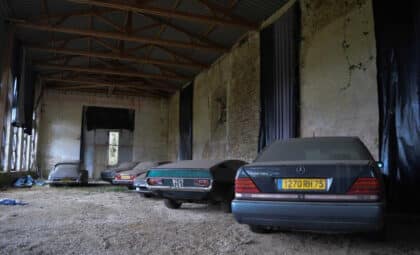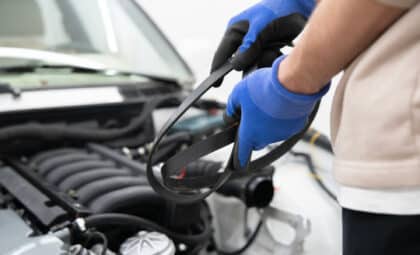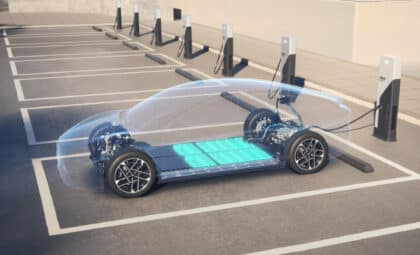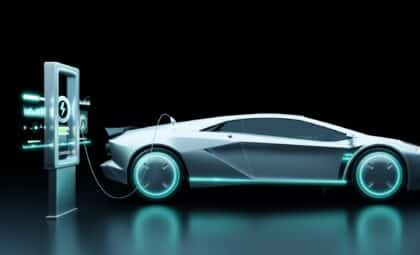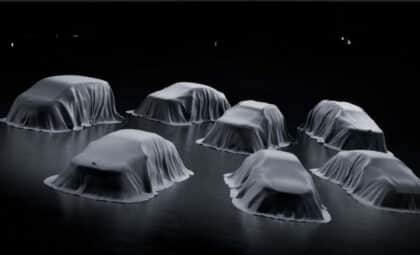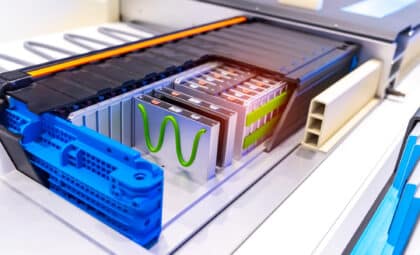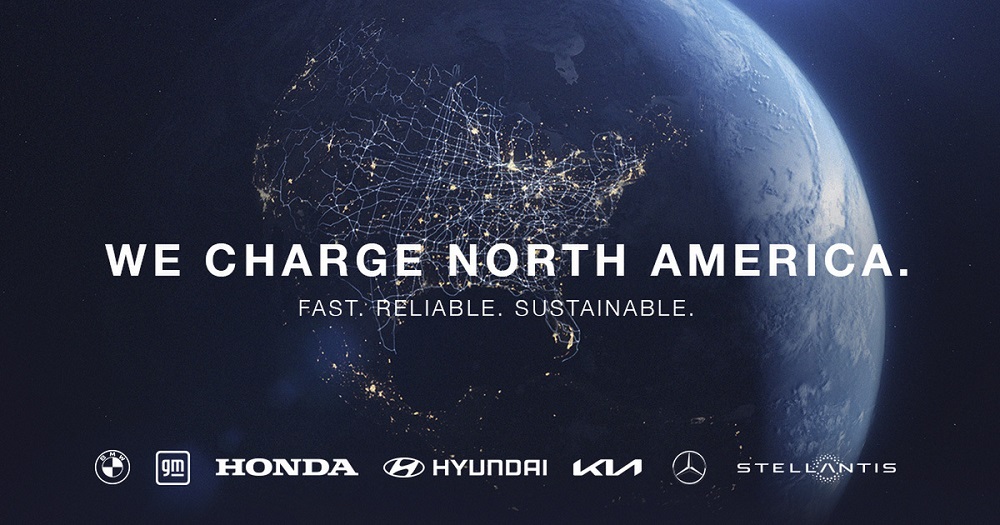
Seven global automakers have teamed up to take on Tesla’s Supercharger network of electric vehicle chargers: Honda, Hyundai, Kia, General Motors, Stellantis, BMW, and Mercedes-Benz. They’ve created a new joint venture centered on the development of more than 30,000 high-powered chargers across North America.
Not Sold On EVs? Consider a hybrid instead
The venture has yet to be formed, but a joint press release says it will be established later this year, and aims to “become the leading network of reliable high-powered charging stations in North America.” Though Tesla isn’t mentioned, it’s clear that the automakers are looking to contest the American EV manufacturer’s dominant lead in the charging infrastructure game.
According to the U.S. Department of Energy, there are currently about 8,700 publicly available DC fast-charging stations in the United States, with about 32,000 plugs in total. Tesla operates around 22,000 Supercharger stalls in North America. For context, the Volkswagen-run Electrify America, which owns the second-most chargers, has just under 3,600.
And these numbers are far from enough. It’s estimated that by 2030, U.S. EV sales will exceed 50% of the auto market share. At least 182,000 fast chargers will be needed to support the 30-42 million plug-in vehicles that will be on the road by then.
The joint venture’s initial plan is to focus on “customer comfort and charging ease,” which means installing charging ports at locations that amenities like restrooms, food services, and stores. In other words: metropolitan areas and stops along major highway routes. At 10-20 plugs per station, the new charging network will include at minimum 1,500 new stations and likely no more than 3,000.
The venture partners haven’t disclosed their specific investments, but creating a high-powered charging network of this scale requires billions of dollars, so there’s clearly a lot of money going into the pot. And the result will be a network that anyone can use, including those who need Tesla plugs and those who need the type used by other brands.
“This joint venture will be a critical step in accelerating EV adoption across the U.S. and Canada and supporting our efforts to achieve carbon neutrality,” said Honda CEO Toshihiro Mibe.
Anxiety about range and holes in the charging network remains one of the top reasons customers hesitate to buy a new electric vehicle. However, it takes massive resources to build a complete charging infrastructure that plugs all of these holes, and Tesla can’t do it alone.
“We are seeing tremendous momentum as private companies, cities, states, and utilities join forces behind our shared goal of convenient, reliable charging that reaches every pocket of America,” said Jennifer Granholm, Secretary of U.S. Energy. “This is what an all-of-America effort looks like.”
Kurt Verlin was born in France and lives in the United States. Throughout his life he was always told French was the language of romance, but it was English he fell in love with. He likes cats, music, cars, 30 Rock, Formula 1, and pretending to be a race car driver in simulators; but most of all, he just likes to write about it all. See more articles by Kurt.

